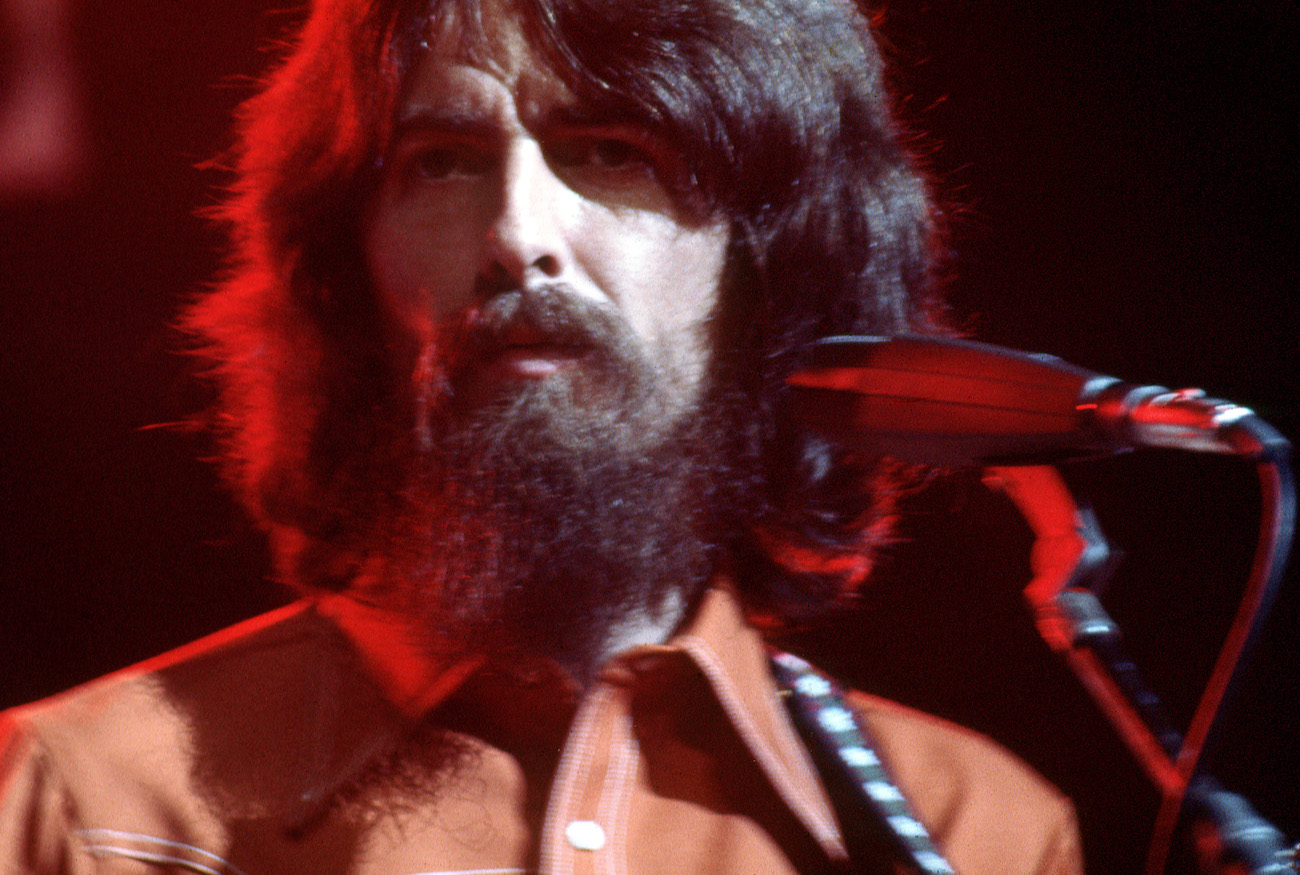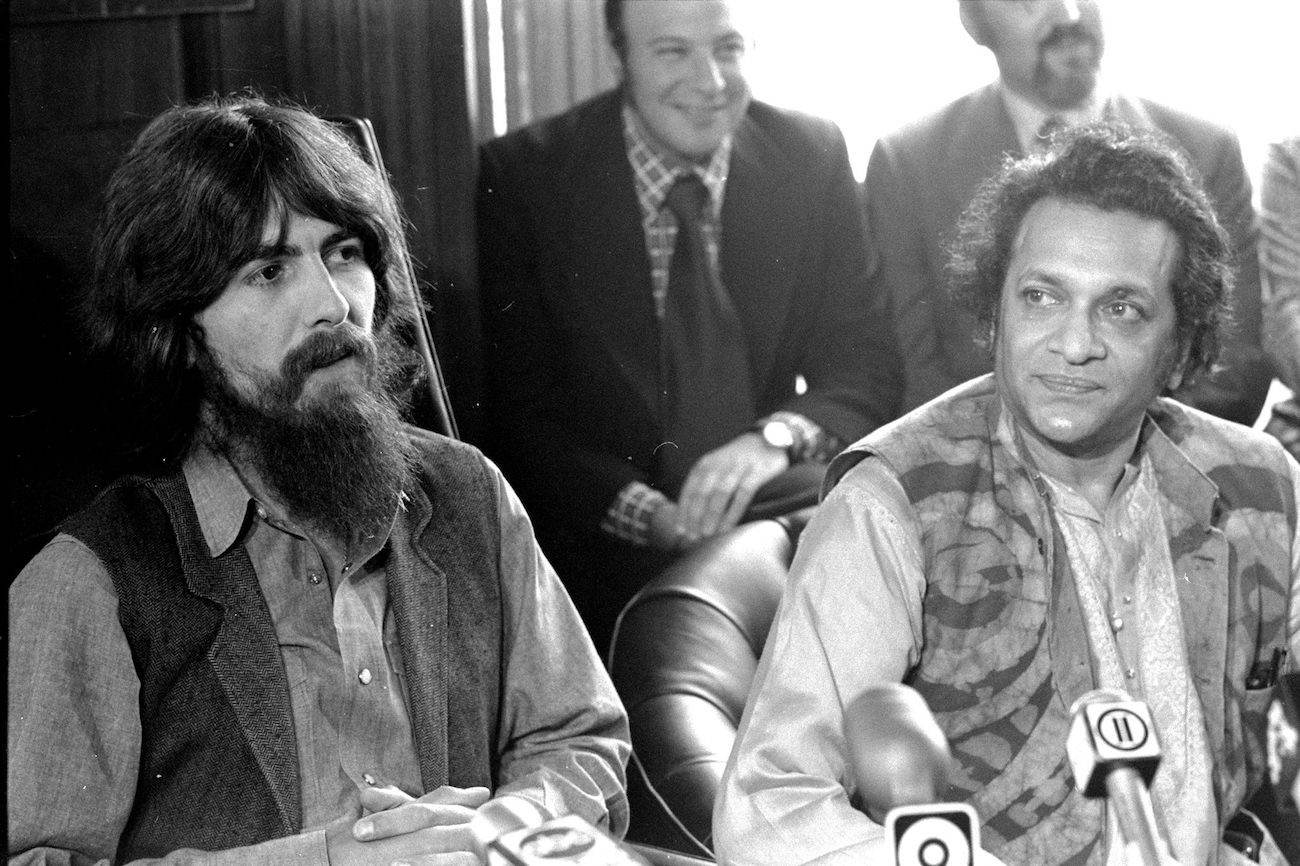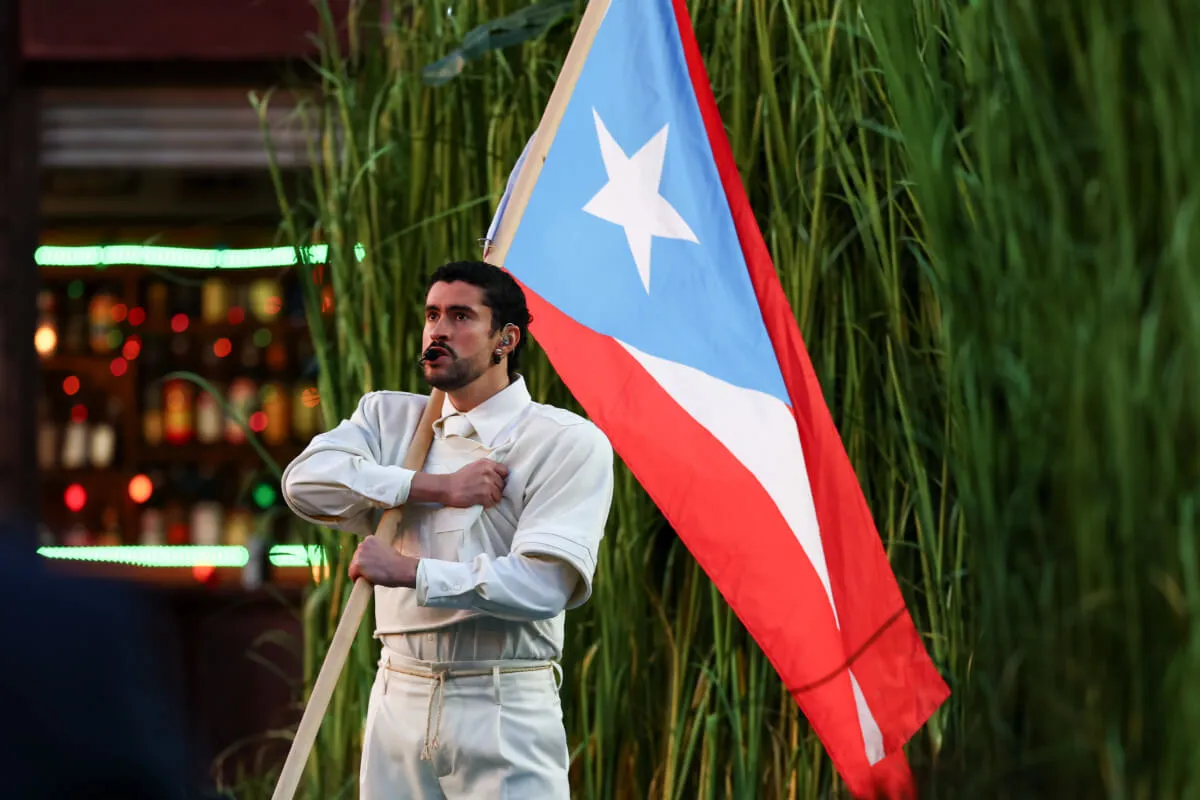
George Harrison Said He Didn’t Want to Give the Money Raised at the Concert for Bangladesh to the Red Cross Because They’re Racist
In 1971, legendary sitarist, Ravi Shankar, asked his friend, George Harrison, to help him with a humanitarian crisis in Bangladesh; the result was the Concert for Bangladesh. The benefit concert was the first of its kind, making millions for the Bangladeshi people.
However, when the money came in, George knew he didn’t want to hand it over to the Red Cross. He thought the organization was racist.

George Harrison organized the Concert for Bangladesh to help his friend Ravi Shankar
In late 1971, Shankar told George about the humanitarian crisis in East Pakistan (formerly East Bengal).
A devastating cyclone had killed 500,000 people. After months of inaction from the West Pakistani government, people wanted a change, and Eastern nationals declared themselves the independent country of Bangladesh. It started a bloody war. The Western Pakistani troops committed genocidal acts on the Bangladeshi people.
“I was in a very sad mood, having read all this news,” Shankar told Rolling Stone, “and I said, ‘George, this is the situation, I know it doesn’t concern you, I know you can’t possibly identify.’ But while I talked to George he was very deeply moved … and he said, ‘Yes, I think I’ll be able to do something.'”
George sprang into action. He organized the Concert for Bangladesh in six weeks. He set up a star-studded lineup for two shows at New York’s Madison Square Garden. The bill included Eric Clapton, Ringo Starr, Billy Preston, Leon Russell, Badfinger, and Bob Dylan.
George said (per Rolling Stone), “The Concert for Bangladesh was just a moral stance. These kinds of things have grown over the years, but what we did showed the musicians and people are more humane than politicians.
“Today, people accept the commitment rock ‘n’ roll musicians have when they perform for a charity. When I did it, they said things like, ‘He’s only doing this to be nice.'”
George didn’t want the money earned at the Concert for Bangladesh to go to the Red Cross
With the help of his famous friends, George raised $243,000 overnight, according to the Guardian. Millions more would come from the sales of the live album. However, George knew who he didn’t want to hand it to; the Red Cross.
During an interview on The Dick Cavett Show (per George Harrison on George Harrison: Interviews and Encounters), George explained that he didn’t want the organization to get the money because they were racist.
Cavett asked where the money went after the shows and how it got to the people who needed it.
George replied, “Well, because this concert was done with such short time for preparation, also because so many of these concerts were rip-offs, we wanted to ensure that we could do the concert and nobody would think that we were keeping the money ourselves.
“So with such a short time there’s only like three weeks by the time we’d more or less decided the concert was going on, and then we set the date for Madison Square Garden, which was the only available day that we had, so we decided the best thing would be to give the money, and say out front that, this money is going to such and such a charity.
“And then we checked different things out, we were going to give it to the Red Cross, this was the first idea—that we give the money to the American Red Cross who in turn could give it to the Indian Red Cross—but then we heard so many different stories about the Red Cross, and how there’s, you know, hurricanes hit someplace in America, and they just take care of the whites, and all the blacks are there and they’re not taking care of them. You hear so many different stories about things.”
They gave the money to UNICEF, but not all the money was able to get to those who needed it
After hearing so many stories about all different organizations, George and Shankar agreed to give the money to UNICEF.
“They have to say to us exactly what they need, and they can come to us and say we need this and this and this, and then we’ll sign the check and let them buy the things they need,” George told Cavett. “So the concert made $250,000, which actually is really very small in terms of the amount of money we’re going to make from the record.”
Choosing UNICEF was their only smart move. In 1985, the LA Times reported that nearly $12 million had been sent to Bangladesh “as a result of the concert proceeds and subsequent investments.”
However, there was a problem; 85% of that money didn’t get to Bangladesh for more than a decade, according to the U.S. Committee for UNICEF. The delay occurred because the proceeds were handled by a profit-making company, The Beatles’ Apple Corp., instead of a legally qualified charity.
Reviewing Apple Corp., auditors from the Internal Revenue Service “looked skeptically at claims that the Concert for Bangladesh money consisted of tax-exempt charity dollars. They ruled it was business income and thus taxable, according to an attorney at the U.S Committee for UNICEF,” the LA Times wrote.
So, when Bob Geldof started organizing Live Aid in 1985, George advised him to get a good accountant. Regardless of his legal issues, George set a precedent with the Concert for Bangladesh. It paved the way for other benefit concerts to come.


